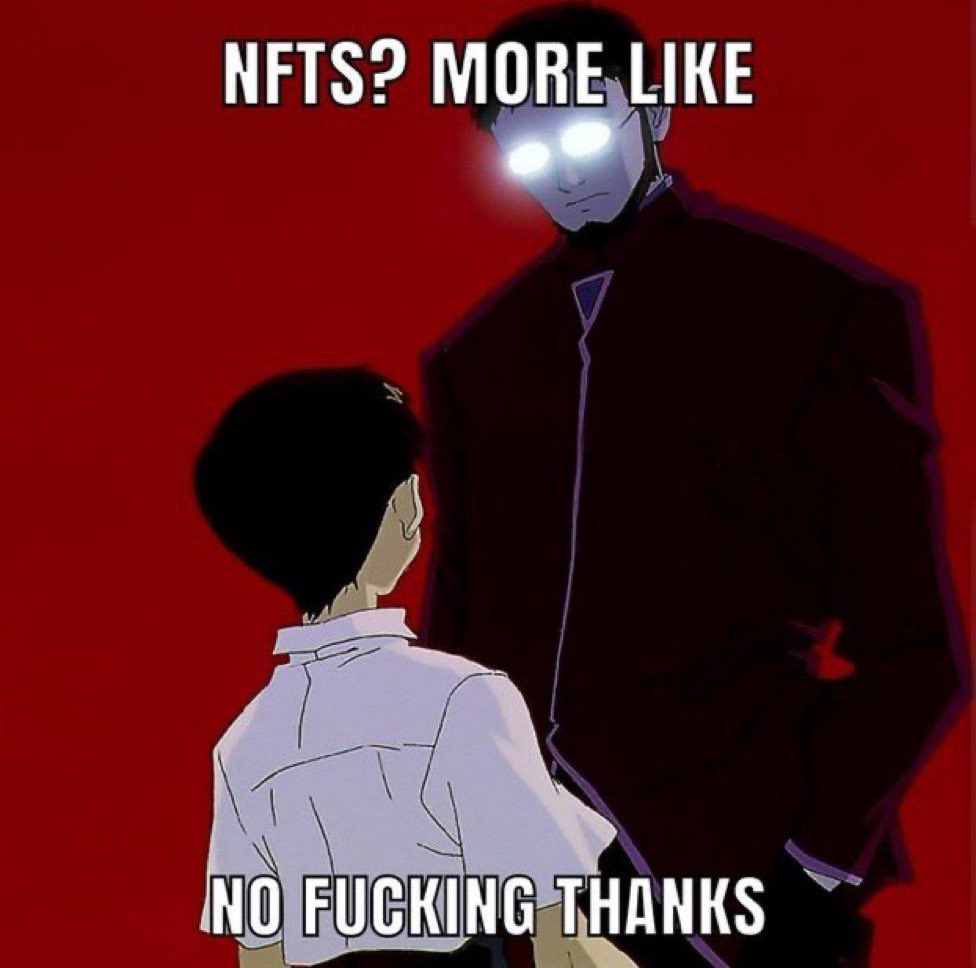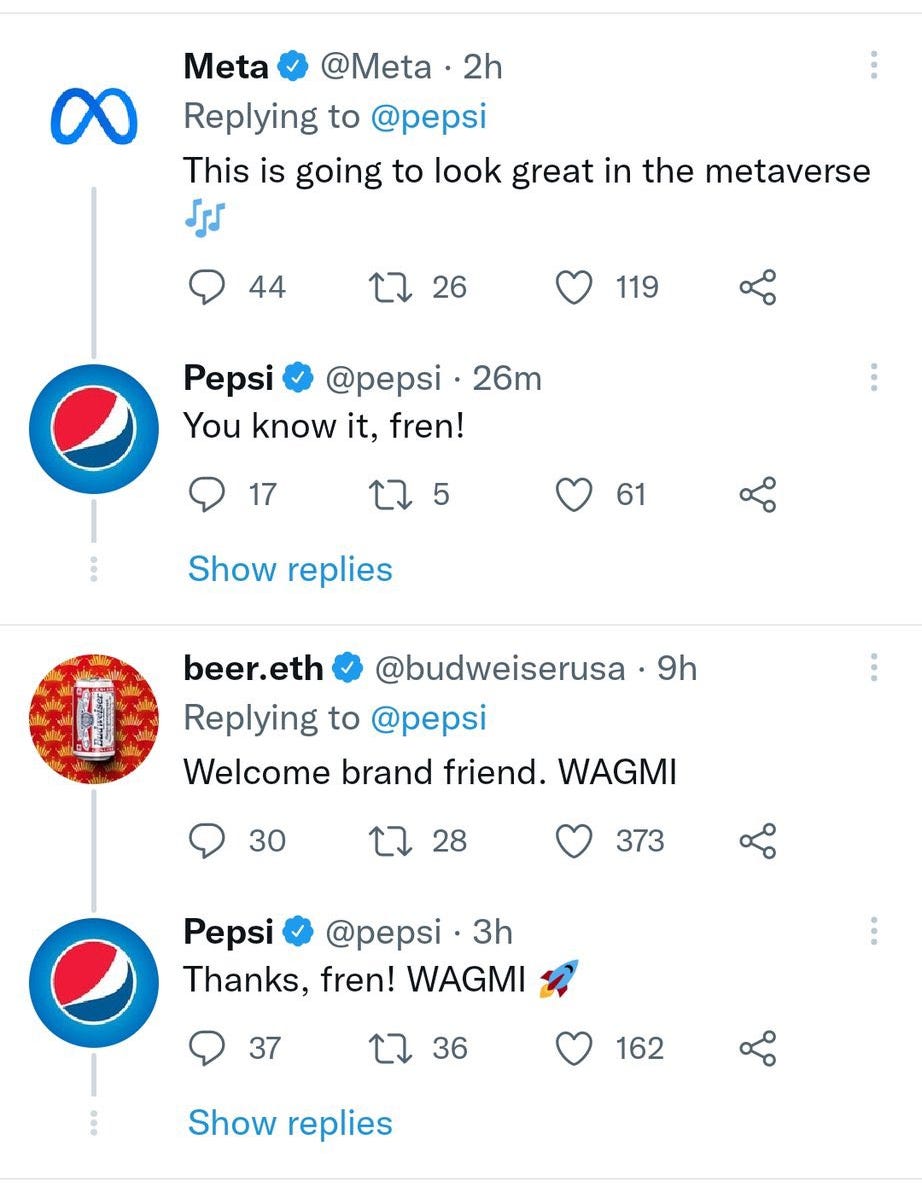How to stay unbiased about crypto
Plus, what *can* MongooseCoin do to CryptoCoin?
In this issue:
How to stay unbiased about crypto
Real gamers read the fine print
What can MongooseCoin do to CryptoCoin?
If Bitcoin goes up we all die
How to stay unbiased about crypto
Let me start with the disclaimer that my politics generally run left-of-center.1 I respect Congresswoman Alexandria Ocasio-Cortez — I don’t always agree with her on policy, but I see her as a thoughtful and committed representative of her voters and her values. I think her answer about why she chooses not to hold Bitcoin is nuanced and reasonable. I also think it is wrong.
AOC is not alone here — abstaining from owning Bitcoin (and other crypto) is pretty common among journalists who cover the space as well:
The desire to rid oneself of financial biases in journalism and government is commendable and I respect the discipline and clarity of purpose. The problem is how it presumes the existence of a "neutral portfolio" that has no bias. With traditional stocks you can achieve something approaching a neutral portfolio by investing in broad indexes like the S&P 500. But what can you do to make your portfolio neutral with respect to Bitcoin?
The actual point of least bias, to the extent there is one, is owning the exact amount of Bitcoin that makes you worry equally about the outcome where Bitcoin collapses and the outcome where Bitcoin goes to the moon. Someone who owns no bitcoin is very obviously better off in a world where Bitcoin collapses than a world where Bitcoin goes to the moon. Owning no bitcoin isn’t unbiased it just scans as unbiased to someone who thinks of crypto as not being part of 'normal' investing.
Bitcoin (and crypto more generally) is too transformative to be neutral on — it is like trying to be neutral about climate change or nuclear proliferation. It isn’t meaningful. Better to disclose your biases than pretend that you’ve eliminated them.
Real gamers read the fine print
On Tuesday video game company Ubisoft announced an NFT program where you could earn or buy digital collectibles that represent cosmetic accessories for your in-game avatar, starting with Ghost Recon. By Thursday the video had accumulated ~22k dislikes (~96% disliked) and Ubisoft delisted the video (although you can still see it with a direct link).
The sale of limited edition collectible in-game cosmetics is nothing new in video games, so this probably sounded like a pretty obvious next step to the executives who greenlit the project. They likely did not anticipate the hornets’ nest they ended up kicking. The headline story here is obviously that the public still associates NFTs with environmental ruination, which is unfortunate.2 But I think an interesting and important subtext is that a lot of people just thought it was a shit idea:
It isn’t clear why any other game besides Ghost Recon would respect or care about NFTs you had earned in (or purchased for) Ghost Recon so it isn’t clear why an Ubisoft NFT was any better than an entry in a Ghost Recon server. It was certainly obvious why it was worse.
You don’t actually need NFTs to attach real world value to your in-game items. There are thriving secondary markets for in-game items for almost any major MMORPG. The actual goal of using NFTs was giving Ubisoft an opportunity to levy a tax on all those secondary market transactions. Users saw through it.
Other things happening right now:
Ugh this is such sloppy reporting and I saw it everywhere. The court ruled that Craig Wright was not Satoshi and also that he owes ~$100M in damages. This was not a win for Faketoshi and headlines implying otherwise are the lowest order of clickbait.
Here is a really interesting analysis from Man Institute arguing that Bitcoin is not actually as good a hedge as naive correlation stats would suggest because Bitcoin correlation with traditional equities is highest when the market is experiencing a drawdown and you most want the assets to be decoupled. The end result of their analysis suggests the optimal allocation to Bitcoin is something like ~0.8% of your overall portfolio.
Pepsi is minting NFTs and brands are having conversations about it together and look I don’t know how to say this but it is probably the end times:
Official inflation was announced this morning at ~6.8%, the highest in my lifetime. Those numbers don’t include food or healthcare though, so as long as those are both getting wildly cheaper we should be fine.
The dirty little unspoken secret of DeFi is that it isn’t actually very decentralized. One way you can see that is to wait for a major AWS outage and then watch how many DeFi services fall apart. Here’s a fun pro tip: if your system needs AWS to run you might as well just run it on AWS.
Congressman Brad Sherman (D-CA) asking the tough questions like "What could Mongoose coin do to Cryptocoin?"3
Ehhhhh … worth it.
The stereotype is that Bitcoin enthusiasts are far-right libertarian types, but actually in practice a majority (~61%) of American Bitcoin holders voted for Joe Biden.
The environmental harm of proof-of-work mining is overstated and NFTs represent a vanishingly small contribution even to that. Ubisoft’s NFTs would operate on the Tezos blockchain which uses proof-of-stake. Ubisoft intended that to reduce environmental objections (it didn’t) but as I’ve written about before the environmental harm of proof-of-stake is actually worse than proof-of-work.
If you are wondering the answer is yes a basket of Mongoose coins ($MONG) were immediately created and subsequently went viral. It almost goes without saying.










